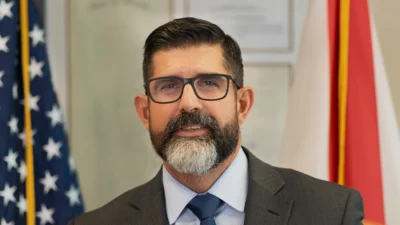Hui Wang | CC0 Credits
Hui Wang | CC0 Credits
Research to improve 3D printing algorithms, develop better materials for measuring radiation and test the effectiveness of steroid treatments all received funding from a Florida State University program that supports faculty interested in transforming their academic work into commercial ventures.
FSU’s Office of the Vice President for Research awarded faculty members more than $132,000 through the Fall 2022 GAP Commercialization Investment Program.
“These faculty are producing exciting research results, and this program helps them expand the reach of their work by supporting their efforts to move from the lab to the market,” said Vice President for Research Stacey Patterson. “This funding is a tool to help them bridge that gap.”
Funded proposals were:
- Improved 3D printing algorithms: 3D printing allows manufacturers to quickly develop prototypes or even to build functional parts. Using a 3D printer requires balancing conflicting needs: Printing too fast leads to defects inside the finished part but printing too slowly means productivity may be too low to meet demands. Hui Wang, an associate professor of industrial and manufacturing engineering at Florida State University and the FAMU-FSU College of Engineering, is developing software that will help 3D printers lay down their materials in a uniform manner, which decreases internal defects. His algorithms helped printers reach the same quality as slower methods 30% faster during testing.
- A simple test for evaluating the effectiveness of steroid treatments: Millions of patients use steroids for a variety of medical issues, including treatment of skin tumors known as keloids, which are benign but can affect quality of life. Only about 34% of patients who receive steroids for keloids show improvement. About half don’t respond to treatment, and some patients even show worsening symptoms. Akash Gunjan, an associate professor in the College of Medicine, developed a test that uses cheek swabs to determine how likely patients are to improve from steroid treatment. Previous GAP funding helped Gunjan complete preliminary rounds of this project, and the latest funding will allow him to advance this work.
- New materials for measuring radiation doses: In nuclear facilities and hospital radiology rooms, workers wear radiation dosimeters to measure how much radiation they are absorbing. Cancer treatments also use dosimeters to make sure patients are receiving a proper dose. But existing materials used for some dosimeters require rare Earth materials and high-temperature processing to deliver a product that is rigid rather than flexible. Biwu Ma, a professor in the Department of Chemistry and Biochemistry, is developing a dosimeter that can be created at room temperature and uses low-cost materials without lead or rare Earth materials. His invention is also flexible, making it useful for applications in which a rigid material isn’t suitable, and it allows for real-time readings of radiation doses.
- Career-readiness modules for university students: Employers want workers who have the skills needed to contribute to their teams. To that end, Florida State University’s Career Center has developed the “ProfessioNole Ready” program to develop skills such as communication, critical thinking, professionalism and others that are crucial to career success. Kyle Roark, senior assistant director of Career Advising, Counseling and Instruction at the center, will use GAP funding to lead the development of a version of ProfessioNole Ready that is customizable for other universities.



 Alerts Sign-up
Alerts Sign-up